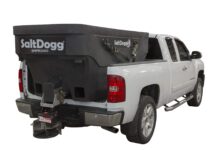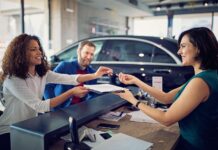
Are you tired of dealing with poor indoor air quality? If you’re neglecting your air filter, then you could be sabotaging yourself and your family’s health.
Find out how to improve the air quality of your home by understanding why an effective air filter is necessary. You won’t believe the difference it can make!
The Importance of Air Filters
Regularly changing your filter is essential for maintaining good indoor air quality and improving the efficiency of your HVAC system. Neglecting to change it on a regular basis can compromise its ability to trap these particles, resulting in poor indoor air quality and potentially damaging your HVAC system’s performance. Therefore, it’s important to make a habit of changing your filter at least every few months to ensure optimal indoor air quality and system efficiency.
The higher a filter’s rating is, usually indicated by the minimum efficiency reporting value (MERV) scale on a package, the more efficient it will be at capturing small airborne particulates. Low MERV-rated filters are designed to trap larger particulates such as dust and dirt in order to keep the fan motor clean.
High MERV-rated filters are designed to capture smaller micron-sized particulates like smoke, smog & volatile organic compounds that cause indoor air pollution. While there is usually no need for most homeowners to buy high MERV-rated filters (usually 8-12 or higher), they are recommended if someone in your home suffers from asthma or allergies or if you want cleaner indoor air in general.

Allergens and Contaminants in the Air
Each time air circulates throughout your home, allergy-causing particulates such as pollen spores, pet dander, mold spores, and dust mites accumulate in your system. Without a filter, these particles will circulate freely through your home. This can be concerning for those with respiratory issues or seasonal allergies as these can exacerbate their symptoms when they are exposed to them.
Therefore, it is imperative to inspect and replace filters regularly for optimal indoor air quality. Depending on the type of filter used in a home as well as environmental conditions like pet ownership or smoking household occupants should replace their filter every 30-90 days depending on usage and the manufacturer’s recommendation.
Impact of Poor Indoor Air Quality on Health
Poor indoor air quality can have a significant impact on the health and well-being of people in a home or workplace. When contaminated air is circulated, the tiny particles that are in it can be inhaled, causing eye and throat irritation, headaches, respiratory illnesses, fatigue, and other adverse symptoms. In people with existing conditions such as asthma or allergies, symptoms may be even more pronounced.
Exposure to poor indoor air quality has been linked to an increased risk of heart disease and cancer due to long-term exposure to fine particles that are smaller than 2.5 micrometers. These particles can penetrate deep into human lungs where they may become lodged in the body permanently. Long-term exposure to these pollutants may also adversely impact cognitive development in children and adolescents who have been exposed by living in homes or working environments with particularly low indoor air quality standards.
Maintenance tips
To ensure that your filtration system is working properly at all times, here are some tips for maintaining your filter:
-Many HVAC systems have reusable filters because they’re more cost-effective and easier to maintain. If you use this type of system, be sure to check the filter regularly — at least every three months — and replace it if necessary.
-If you have a purification system with disposable filters, keep up with manufacturer guidelines to determine how often the filter needs to be replaced (generally every two months).
-Dust buildup in your home increases the number of particulates that end up clogging your filter more quickly. When possible, address issues like mold or excess moisture in and around your home as soon as possible. Performing normal maintenance around the house such as vacuuming carpets or cleaning ducts can also prevent dust buildup and help maintain proper indoor air quality.
-Check for blockages when you inspect or replace a filter; many units have a pre-filter built into them which catches larger particles and can eventually become blocked by debris if not cleaned or replaced periodically. A blocked pre-filter will cause your main one to become dirty more quickly than normal so it’s important to keep them both clean and free from blockages.
Maintaining a clean, efficient filter is one of the best ways to ensure that you’re getting maximum efficiency from your heater or air conditioner while also keeping pollutants out of the air you’re breathing indoors!
Hiring a professional for HVAC maintenance
Hiring a professional for HVAC maintenance is an important step in ensuring the long-term health of your heating and cooling system. While DIY maintenance can be effective, there are certain tasks that are best left to the experts. Here are some reasons why you should consider hiring a professional for HVAC maintenance:
Safety: HVAC systems involve electricity, natural gas or propane, refrigerant chemicals, and other potentially hazardous materials. A professional technician has the training and experience to safely handle these materials without putting themselves or your family at risk.
Efficiency: Professional technicians have the tools and knowledge to quickly diagnose and correct issues with your HVAC system. This can save you time and money in the long run by preventing small problems from becoming bigger ones.
Longevity: Regular maintenance by a professional can extend the lifespan of your HVAC system by catching issues early on before they cause serious damage. This means you’ll get more years out of your investment before needing to replace it.
Warranty: Many HVAC systems come with warranties that require regular maintenance by a certified technician in order to remain valid. Hiring a professional ensures that you meet these requirements and protects your investment.
Expertise: Professional technicians have extensive knowledge of HVAC systems and can provide valuable advice on how to optimize performance, improve efficiency, and save money on energy bills.
Conclusion
Making sure your filter is clean and in good working condition is a simple preventative measure that can make all the difference when it comes to breathing easily at home. When your filter is cluttered and not properly cared for, it contributes to airborne contaminants that lower the indoor air quality of your home, increase energy bills, exhaust HVAC systems prematurely, and more.
Regularly checking and replacing your filter can help guarantee that you’re breathing clean air free of allergens and pollutants. Plus, taking care of an air filter is easy—it takes only takes a matter of minutes—making it a low-effort investment with potentially great rewards in terms of cost savings and comfort. So don’t take this critical component of your HVAC system for granted!


